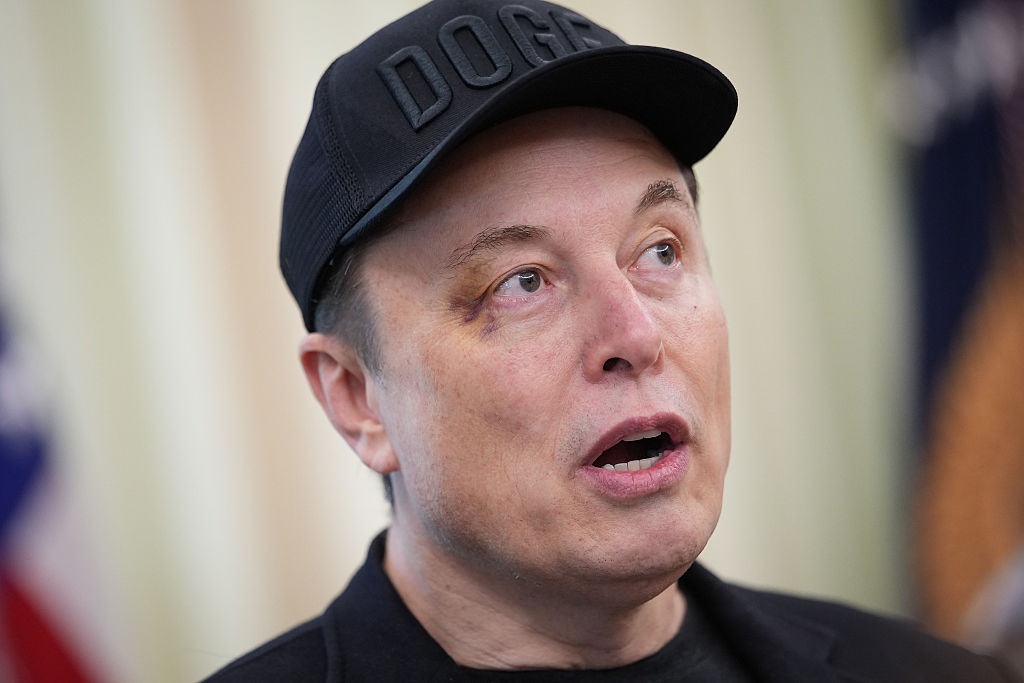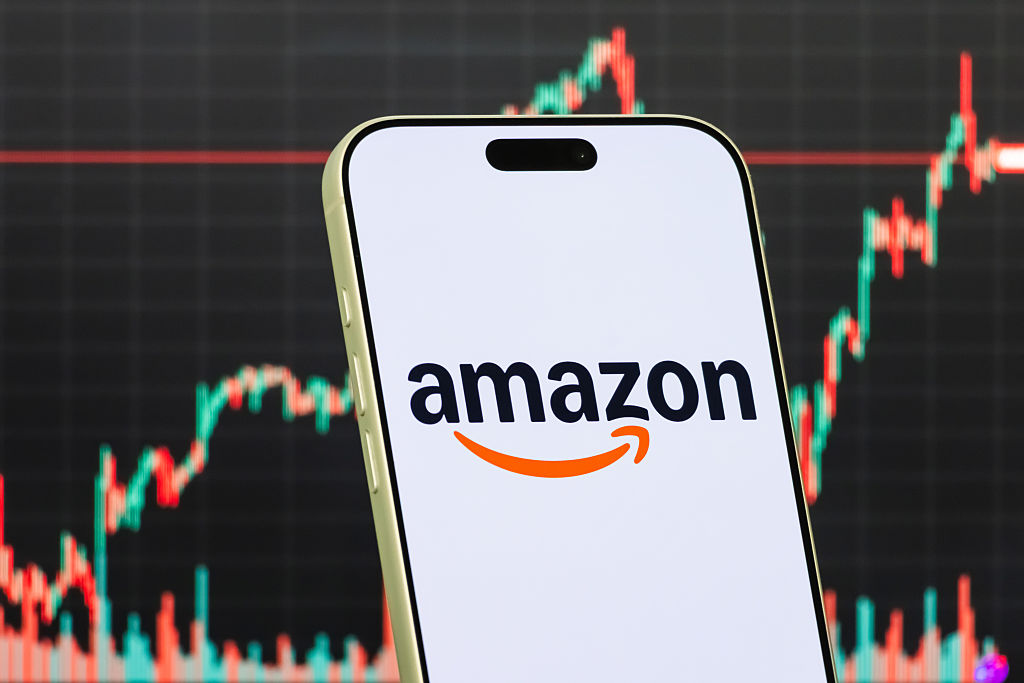Should you follow Elon Musk into Twitter?
Elon Musk is now a key shareholder in social media site Twitter. Should you follow his example? Rupert Hargreaves crunches the numbers


Get the latest financial news, insights and expert analysis from our award-winning MoneyWeek team, to help you understand what really matters when it comes to your finances.
You are now subscribed
Your newsletter sign-up was successful
Want to add more newsletters?

Twice daily
MoneyWeek
Get the latest financial news, insights and expert analysis from our award-winning MoneyWeek team, to help you understand what really matters when it comes to your finances.

Four times a week
Look After My Bills
Sign up to our free money-saving newsletter, filled with the latest news and expert advice to help you find the best tips and deals for managing your bills. Start saving today!
Twitter (NYSE: TWTR) certainly punches above its weight in the world of social media. The platform only has 217m daily active users compared to Facebook’s (NASDAQ: FB) 2bn-plus, but Twitter’s users move markets, create news stories and drive political decisions.
It has also become a platform for figures like Elon Musk and Donald Trump to reach their supporters around the world (although Trump was banned at the beginning of 2021). And Musk has now decided to take his love of the platform further by acquiring a 9.2% stake in the social media company.
It seems the billionaire bought the majority of this $2.9bn stake in early March when shares in the social media company were trading in the low $30s. After his position was announced, the stock jumped to more than $50.
MoneyWeek
Subscribe to MoneyWeek today and get your first six magazine issues absolutely FREE

Sign up to Money Morning
Don't miss the latest investment and personal finances news, market analysis, plus money-saving tips with our free twice-daily newsletter
Don't miss the latest investment and personal finances news, market analysis, plus money-saving tips with our free twice-daily newsletter
The billionaire has acquired a major position in one of his favourite toys
Musk is one of the platform’s most prolific users with more than 80m followers. He’s also used Twitter to reach out and appeal to his band of loyal followers around the world.
Last year he famously asked if he should sell 10% of his stock in his electric car firm Tesla (NASDAQ:TSLA). Twitter users said 'yes' and Musk sold around $5bn (£3.7bn) of his stake, although he still owns 17% of the company (worth around $200bn at today’s price).
The billionaire’s antics have produced a huge amount of publicity for Twitter, and for a company that thrives off attention and advertising, that is no bad thing.
Advertising made up 89% of Twitter’s revenues in the fourth quarter, so this is where the real money comes from. The enterprise also sells data subscriptions to companies and developers, an important and growing revenue stream.
Advertising includes Promoted Ads and Follower Ads, which can cost anywhere from $0.50-$4 for every time a user clicks on the ad or follows the advertiser’s account. Around 85% of the advertisers on the platform are large companies like Disney (NYSE: DIS), but 15% are small and medium-sized businesses.
Over the past two years, the group has really stepped up its growth ambitions, laying out an ambitious target to generate revenues of $7.5bn in 2023, more than double the $3.5bn reported for 2019. And there is certainly plenty of room for the company to expand. The global advertising market (excluding China) was worth around $500bn in 2021.
Twitter continues to seek out new ways to monetise its content
To hit its growth targets, the platform will need more users. Having high-profile accounts on the platform like Musk is helping the group reach a larger audience. The pandemic has also helped as users have come to rely on Twitter for breaking news and health updates over the past two years.
Tweeters (or to give them their full name, Average Monetizable Daily Active Users) grew 13% last year as a result of “product improvements, as well as global conversation around current events.” The company’s new CEO, Parag Agrawal, who took the helm in November 2021, thinks the social network can reach 315m daily users by the end of 2023.
What does Musk want with the business?
Musk’s stake in the company has certainly generated a lot of buzz, and Twitter’s decision to appoint the billionaire to its board of directors is a notable development. Still, it is unclear if his presence will translate into a longer term benefit for the company.
It could be the case that the billionaire is trying to change the company from within. He has been campaigning for Twitter users to have the ability to edit tweets and he has also criticised the platform for its free speech policies.
But even if he is able to drive through changes, it is difficult to say if they will have a noticeable impact on user growth and revenue generation. As social media users tend to be quite resistant to change, any new features Musk drives through might cause a backlash. Past changes to Twitter’s layout have caused uproar.
After the events of the past week, Twitter shares are trading on a forward price-to-earnings (p/e) ratio of 44. That seems expensive even for the high-flying US tech sector. Facebook sits on a forward p/e of 16 while Snap (LSE: SNAP) and Pinterest (LSE: PINS) are trading on multiples of 38 and 19.4 respectively. Twitter’s growth potential explains some of this premium, but not all of it. And this growth is only projected, not guaranteed.
Musk’s decision to make himself one of Twitter’s largest investors has certainly generated a lot of chatter on and off Twitter, but if the company cannot meet its ambitious growth targets, he might regret his decision.
Get the latest financial news, insights and expert analysis from our award-winning MoneyWeek team, to help you understand what really matters when it comes to your finances.

Rupert is the former deputy digital editor of MoneyWeek. He's an active investor and has always been fascinated by the world of business and investing. His style has been heavily influenced by US investors Warren Buffett and Philip Carret. He is always looking for high-quality growth opportunities trading at a reasonable price, preferring cash generative businesses with strong balance sheets over blue-sky growth stocks.
Rupert has written for many UK and international publications including the Motley Fool, Gurufocus and ValueWalk, aimed at a range of readers; from the first timers to experienced high-net-worth individuals. Rupert has also founded and managed several businesses, including the New York-based hedge fund newsletter, Hidden Value Stocks. He has written over 20 ebooks and appeared as an expert commentator on the BBC World Service.
-
 Early signs of the AI apocalypse?
Early signs of the AI apocalypse?Uncertainty is rife as investors question what the impact of AI will be.
-
 Reach for the stars to boost Britain's space industry
Reach for the stars to boost Britain's space industryopinion We can’t afford to neglect Britain's space industry. Unfortunately, the government is taking completely the wrong approach, says Matthew Lynn
-
 Key lessons from the MoneyWeek Wealth Summit 2025: focus on safety, value and growth
Key lessons from the MoneyWeek Wealth Summit 2025: focus on safety, value and growthOur annual MoneyWeek Wealth Summit featured a wide array of experts and ideas, and celebrated 25 years of MoneyWeek
-
 The Stella Show is still on the road – can Stella Li keep it that way?
The Stella Show is still on the road – can Stella Li keep it that way?Stella Li is the globe-trotting ambassador for Chinese electric-car company BYD, which has grown into a world leader. Can she keep the motor running?
-
 Tesla seeks approval to supply electricity to UK homes – could it disrupt the energy market?
Tesla seeks approval to supply electricity to UK homes – could it disrupt the energy market?Tesla has applied for a license to supply UK households with electricity, but taking on the biggest providers could prove challenging
-
 Tesla shares slump over Trump/Musk feud
Tesla shares slump over Trump/Musk feudA war of words has sent Tesla shares spiralling to the company’s largest single-day value decline in history
-
 Tesla is no longer the world’s largest electric car maker. Should you invest?
Tesla is no longer the world’s largest electric car maker. Should you invest?Investors need to weigh up the potential of Tesla’s autonomous technology drive against struggles in its core carmaking business when deciding whether or not to invest
-
 Amazon shares fall on profitability concerns
Amazon shares fall on profitability concernsA big increase in capital spending plans compounded an earnings miss for Amazon following its Q4 results
-
 Where to invest in the metals that will engineer the energy transition
Where to invest in the metals that will engineer the energy transitionA professional investor tells us where he’d put his money. This week: John Ciampaglia, manager of the Sprott Energy Transition Materials UCITS ETF.
-
 Tap into the key long-term growth trends with these resilient performers
Tap into the key long-term growth trends with these resilient performersA professional investor tells us where he’d put his money. This week: Zehrid Osmani, portfolio manager, Martin Currie Global Portfolio Trust, picks three favourites.